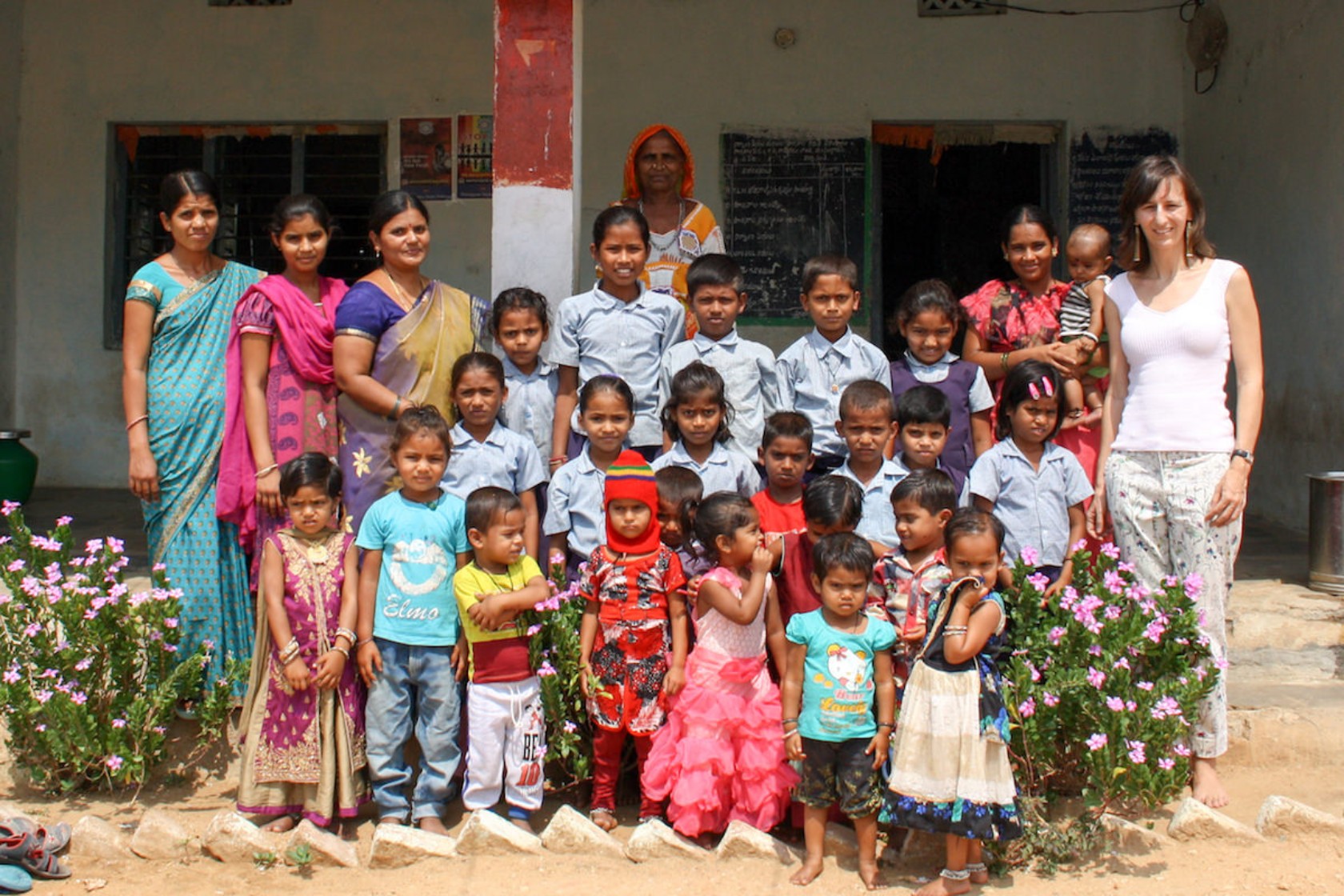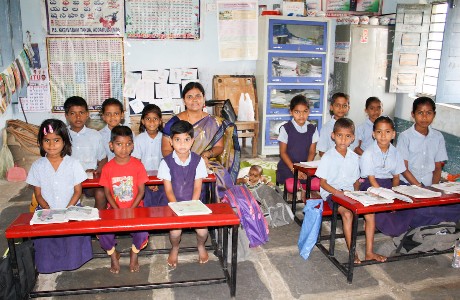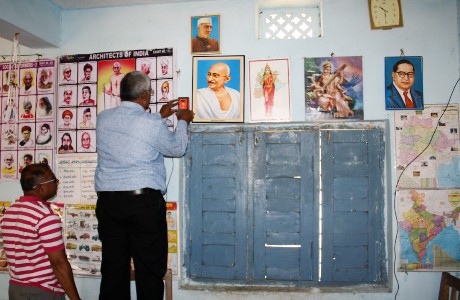First solar panel installed successfully in Indian school

The World Bank estimates that 1.1 billion people do not have access to affordable electricity. The lack of electricity inhibits economic development, reduces educational opportunities and hinders health care. Especially in rural areas in Africa and South Asia, schools and hospitals often have to get by without electricity. Renewable energies can make a great contribution in those areas and help to improve the circumstances of life, said the authors of the UN study. Mini power plants run on the basis of sun, wind or water, they can be operated on site and do not need any special infrastructure.
We are happy to report that after a long period of planning and preparation, we finally installed the first solar panel in a small school in Katavaram Thanda with the help of the "Sustainable India Project" by the Belgian Kelly Mermuys. tabevents has talked to the project leader on site and asked where the challenges lie in getting electricity into the rural areas in India.
tabevents: Kelly, it took a while until you could tell us about the successful installation. Which obstacles did you have to take?
Kelly: The school is connected with the electricity grid since the end of 2016. So only since a short while, the school got used to have access electricity and use it. But still, the power supply stays erratic. For now, they only use electricity to switch on a tube light. We first prepared to install a 1 kWp with battery backup to supply more electricity than they use. We had in mind to provide internet access where electricity supply is a prerequisite. It was a challenge to find an installer for such a small project in a remote area. The access to the internet was more complex than foreseen. On top, the subsidy we applied for from the government was not available anymore.Finally, we decided to redesign the project and install a plug and play solar lighting system that had to be procured from another state. The school gets now light from 2 light bulbs and a tube light via a solar panel.
tabevents: In your opinion, what are the biggest advantages that the small school in Katavaram Thanda now has with the access to electricity? What can they do in the future which they couldn’t until now?
Kelly: Since the installation of the solar system they have a reliable power system. If they want light, it will always be there. In this village in South India there is an abundance of sun during the whole year and when it is dark the battery, charged during the daytime, can take over to provide light. This small project is a first step in building awareness that in remote areas solar systems can be a very reliable solution. The teacher and kids get experience with it and in the future, with the use of their electrical devices, they can enlarge the solar project themselves.
tabevents: What has touched you most during the time of the project in Katavaram Thanda? Is there an experience or a story?
Kelly: I was very touched by the gratefulness of the teachers and the children. Even if there was a language barrier, this message was very clear and more powerful than words. It was a challenge to drive there, the last part was off-road and then we arrived in a remote but very alive community. In this remote area, children grow up and get educated for their future life. I also noticed many new toddlers had joined the school in comparison with my last visit. For their future, having reliable access to light (what in the West we take for granted), makes a difference. The gratefulness for this gift that they didn’t ask for themselves, was amazing.
Thank you Kelly, for the update and we are already looking forward to hearing from you from the next school project.
Video Report from Katavaram Thanda


